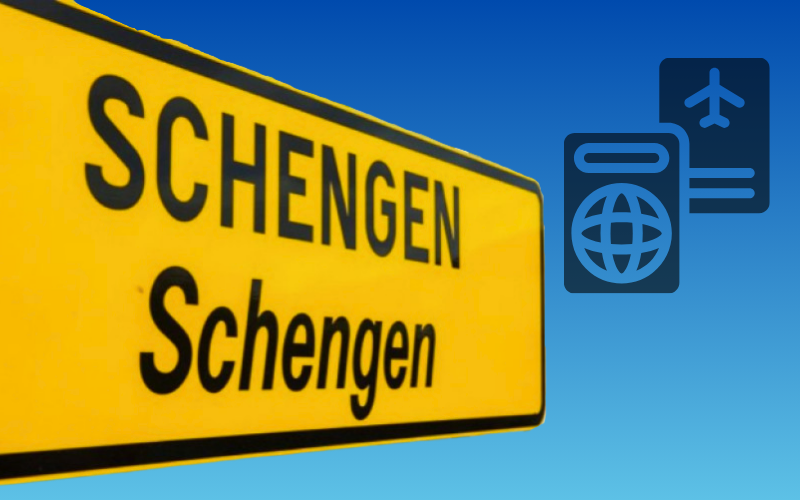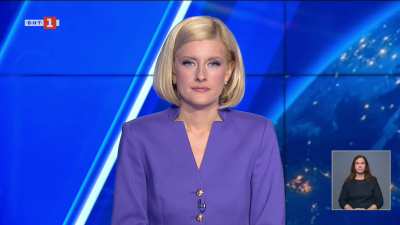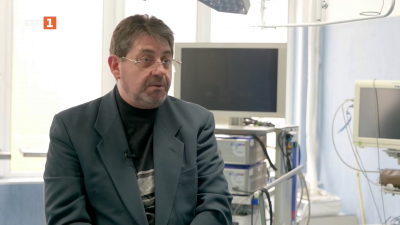Council of the EU approves Bulgaria and Romania to join Schengen starting with air and sea borders as of March 2024

The Council of the European Union decided to extend the Schengen area to Bulgaria and Romania, the Spanish presidency of the Council of the EU announced on December 30.
"Schengen is growing! The Council of the European Union has decided to extend the Schengen area to Bulgaria and Romania.
Controls at internal air and sea borders will be abolished in March 2024, while the decision on abolishing controls by land will be taken later.
European Council President Charles Michel wrote: “Congratulations to Romania and Bulgaria on the extension of Schengen for maritime and air transport passengers. A long awaited step for Romanian and Bulgarian citizens to enjoy easier freedom of movement with the perspective of land transport to come.”
European Commission President Ursula von der Leyen said:
“Today is a day of great pride for Bulgaria and Romania. The decision to lift internal air and sea border checks is a major step forward for them and for the Schengen area. Both have worked hard for it. They both deserve it. They will make Schengen even stronger,”
The Commission welcomes today's unanimous decision by the Council to welcome Romania and Bulgaria into the Schengen area, starting with lifting controls at air and sea borders as of March 2024. Their accession will boost travel, trade and tourism and will further consolidate the internal market. Discussions on a further decision to lift controls at land borders will continue in 2024. An enlarged Schengen area will make the EU stronger as a Union, internally and on the global stage.
President von der Leyen said: “Today marks a historic moment for Bulgaria and Romania. And a day of great pride for Romanian and Bulgarian citizens. As of March, they will be able to freely cross internal sea and air borders, without border controls. This is a major step forward for both countries and for the Schengen area as a whole. Congratulations to Bulgaria and Romania: this great achievement is possible thanks to your hard work, commitment and perseverance. Thanks to you the Schengen area will become even stronger to the benefit of all EU citizens.”
Bulgaria and Romania are ready to join the Schengen area. The Commission first confirmed that both Bulgaria and Romania were ready to become part of the Schengen area without internal border controls in 2011. Since then, Bulgaria and Romania have continued to demonstrate that they fulfil the conditions for becoming Schengen members. This was reconfirmed by three fact finding missions at the Bulgarian and Romanian external borders in 2022 and 2023. The Commission also launched pilot projects with Romania and Bulgaria in March 2023 to boost external border management, reinforce cooperation with neighbouring countries and ensure fast asylum and return procedures.
The Schengen area is also ready to welcome Bulgaria and Romania. In the last decade, the EU has worked to reinforce the architecture that protects the area without internal border controls. A series of measures in the field of security, police and judicial cooperation have been introduced to ensure that the EU remains strong against security threats. The Schengen area is now also supported by a new governance model, a new evaluation mechanism and an annual cycle of reporting and monitoring. The joint efforts made in recent years have made Schengen stronger and more resilient.
This ninth enlargement of the Schengen area both confirms and reinforces the mutual trust and unity between Member States on which Schengen is built and will help to advance this essential project. It will make the Union stronger through a reinforced protection of our common external borders and effective police cooperation – more prosperous by eliminating time lost at borders and facilitating people and business contacts – and more attractive by significantly expanding the world's largest common area without internal border controls.
Next steps
Discussions on a date for a possible lifting of the checks on persons at internal land borders will continue in 2024 and a decision by the Council on this matter is expected to be taken within a reasonable time frame.
To assist Bulgaria and Romania in protecting the external borders of the Union, substantial financial support and Frontex assistance will continue to be provided. At the same time, the pilot projects developed by Bulgaria and Romania at the external borders have proven effective and should be turned into more structural arrangements.
Background
Europe's Schengen area of free movement is one of its greatest achievements and one that EU citizens cherish most. What started as an intergovernmental project between five Member States in 1985 – France, Germany, Belgium, Netherlands and Luxembourg – has gradually expanded over seven enlargement stages to become what is today the largest area of free movement in the world. The benefits of abolishing internal borders remain as compelling today as they were in 1985.
The Schengen area comprises 27 countries and extends over 4 million square kilometers with a population of almost 420 million people. With Romania and Bulgaria, the Schengen area will grow to 4.5 million square kilometers with a population of 450 million.
The Schengen area is an integral part of the EU's legal framework. According to the Treaties all EU Member States of the EU need to become, when ready, full members of the Schengen area. This is both a right and an obligation. Both Bulgaria and Romania have proven to have a model track record of implementation. With Romania and Bulgaria, Schengen only becomes stronger. Voluntary fact-finding missions in 2022 in Bulgaria and Romania, and the latest mission in 2023 in Bulgaria only reinforced their readiness.
The press office of Bulgaria's Council of Ministers announced that contrary to the misinformation spread in recent days, Bulgaria does not accept additional conditions related to refugees from Syria and Afghanistan. Bulgaria is committed to working with Austria and Romania to limit secondary movements in line with European legislation. This includes strict application of the Dublin Regulation and readmission of persons registered as seeking international protection in Bulgaria and for whom Bulgaria is responsible. This obligation under the Dublin Regulation has been directly applicable in each EU member state since 2013 and is linked to the rule on the responsibility of the country of first entry into the EU. The commitment that is being made is for enhanced cooperation at an accelerated pace and without unnecessary formalities. Bulgaria will not and cannot accept persons for whom it is not responsible.
The tripartite declaration also commits to discussing a date for the abolition of land border controls in 2024.
The abolition of internal border controls for air and sea travel that will take effect in March 2024 is in respect of all the Schengen members – Belgium, the Czech Republic, Denmark, Germany, Estonia, Greece, Spain, France, Croatia, Italy, Latvia, Lithuania, Luxembourg, Hungary, Malta, the Netherlands, Austria, Poland, Portugal, Slovenia, Slovakia, Finland, Sweden, Iceland, Liechtenstein, Norway and Switzerland, respectively – and Romania, the statement said.
Get the latest news wherever you are!
Follow us on
Facebook
and
Instagram
Follow BNT’s YouTube channel
You can now also watch us on
TikTok
Find us on
Google News























